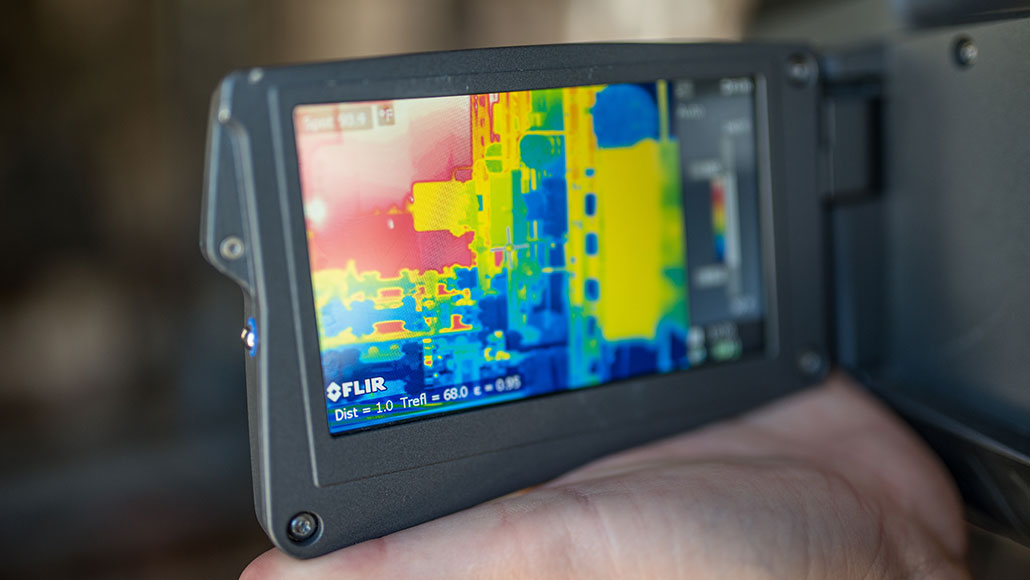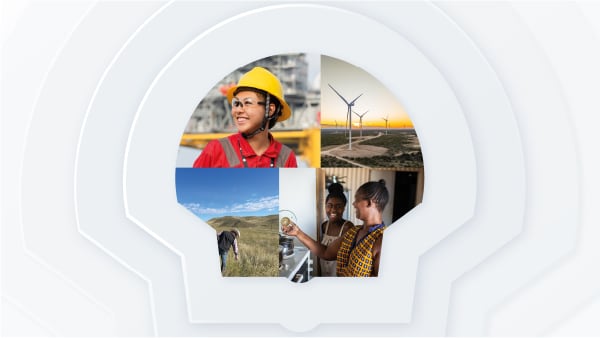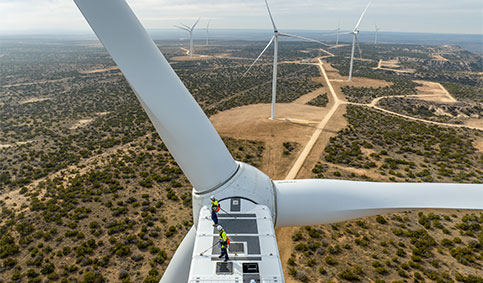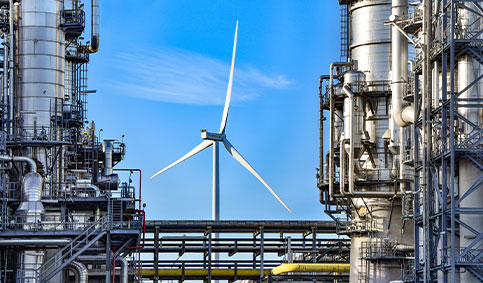Methane emissions
Reducing methane emissions is an urgent priority for the oil and gas sector and we believe it is crucial to help achieve net-zero emissions by 2050. Methane is the main component of natural gas and is a relatively short-lived, but highly potent, greenhouse gas. It is released through flaring and venting during oil and gas production and can also leak during the production, processing and transport of oil and gas.
We have been at the forefront of efforts by the oil and gas sector to reduce methane emissions. We have set a target to eliminate routine flaring from our upstream-operated assets by 2025,[1] five years ahead of the World Bank's Zero Routine Flaring by 2030 initiative.
We have supported the reduction of methane emissions throughout the gas value chain through direct regulations such as performance standards based on robust monitoring, reporting and verification (MRV) frameworks.[2] We also advocated ending routine flaring as soon as possible to help achieve such performance standards.[3]
In 2023, at an international level, we signed up to the Oil and Gas Decarbonization Charter announced at COP28, which focuses on reducing Scope 1 and 2 carbon dioxide (CO2) equivalent emissions, flaring and methane emissions. Signatories to the charter have committed to achieving net-zero operations by 2050, near-zero upstream methane emissions by 2030 and zero routine flaring by 2030.
We are contributing to the World Bank’s Global Flaring and Methane Reduction (GFMR) fund, launched at COP28.[4] In early April 2024, Shell signed the formal GFMR agreement, becoming the GFMR’s first official partner.
We are part of the Advancing Global Methane Reduction initiative, launched by the Methane Guiding Principles coalition. This aims to drive reductions in methane emissions in more than 20 countries, working with governments and industry to inform methane policies and regulations and disseminate best practices.[5]
We are co-funding and participating in the Oil and Gas Climate Initiative (OGCI) Satellite Monitoring Campaign. This campaign has helped local operators, including national oil companies and partners, to identify and mitigate methane emissions from their oil and gas operations. Work is ongoing to support further reductions.
In the EU, we continued to support an ambitious and consistent methane policy framework by providing input and feedback on proposals for regulatory requirements throughout the legislative process. We conducted advocacy through the International Association of Oil & Gas Producers (IOGP) and Eurogas.
We provide more detail about our advocacy on some of these topics on our website.[6]

[1] Subject to completion of the sale of Shell Petroleum Development Company of Nigeria Limited (SPDC).
[2] In our updated policy positions, we call on governments and policymakers to aim for near-zero methane emissions by 2030 throughout the gas sector through direct regulations such as performance standards based on robust MRV frameworks.
[3] We previously advocated ending routine flaring by 2025, but in light of proximity to 2025, we now advocate ending routine flaring as soon as possible and no later than 2030. Shell’s target remains to eliminate routine flaring from our upstream-operated assets by 2025.
[4] www.worldbank.org/en/programs/gasflaringreduction/brief/ggfr-to-evolve-to-the-global-flaring-methane-reduction-partnership
[5] The Methane Guiding Principles is a coalition initiated by Shell in 2017, which convenes industry and civil society and aims to reduce methane emissions along the full gas value chain.
[6] www.shell.com/sustainability/transparency-and-sustainability-reporting/advocacy-and-political-activity/climate-and-energy-transition-advocacy-updates.html. We also provide further information about reducing methane emissions on our website: www.shell.com/what-we-do/oil-and-natural-gas/methane-emissions.html









